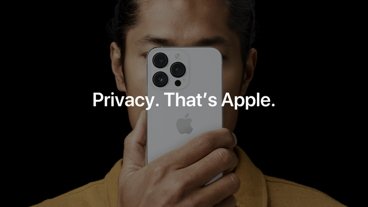Epic win: Jury rules Google Play app store and billing an illegal monopoly
Last updated
The Epic versus Google case has reached a significant milestone as the jury ruled that Google violated California and federal antitrust laws, but years of appeals are sure to follow.
Just three years after Apple's win against Epic for similar claims, Google has lost. The jury ruled that Google made special deals to stifle competition for the Play Store.
According to a report from Wired, the San Francisco jury unanimously found Google in violation of California and federal antitrust laws. However, the litigation has only begun as a judge must decide what to order Google to do to remedy the situation, followed by appeals from Google.
"We plan to challenge the verdict," says Wilson White, a Google vice president of government affairs and public policy. "We will continue to defend the Android business model and remain deeply committed to our users, partners, and the broader Android ecosystem."
Google's Android operating system already allows third-party app stores and side loading. However, the lawsuit asserts that Google uses its power over Android and the smartphone market to exact control over what apps and storefronts are promoted, pushing for Google Play over others. It also focused on Google's financial arrangements with smartphone vendors to lock users in, with Google Play as a primary app store.
Epic also alleged that existing options for users to circumvent Google Play were too cumbersome and purposefully built to push users back to Google. The company was effectively "shutting rivals off," Epic lawyer Gary Bornstein shared.
Epic published a blog post celebrating the win.
"Over the course of the trial we saw evidence that Google was willing to pay billions of dollars to stifle alternative app stores by paying developers to abandon their own store efforts and direct distribution plans, and offering highly lucrative agreements with device manufacturers in exchange for excluding competing app stores."
The blog post concludes with a thank you to the court for "the next steps determining the remedies that will right Google's decades of anticompetitive conduct."
Conversely, Apple escaped Epic's lawsuit with only one count against it — anti-steering practices. Apple is still fighting that ruling but will likely have to comply eventually.
Epic's fight to have a foothold in app distribution and monetization continues as governments become more interested in combating antitrust.
 Wesley Hilliard
Wesley Hilliard














 Amber Neely
Amber Neely
 Thomas Sibilly
Thomas Sibilly
 AppleInsider Staff
AppleInsider Staff
 William Gallagher
William Gallagher
 Malcolm Owen
Malcolm Owen
 Christine McKee
Christine McKee









14 Comments
It’s a fine line, however, the way entitled folks are jumping on the current „all power to the customer“ - no matter whether it’s about „I want my own store“ or „I want to repair everything and anything but the evil manufacturer still owns me in case something goes south“ in the end rarely creates benefits for the consumers. Similar to the mess, streaming turned out to be after breaking the chains of cable cutting.
If Google actually abused their leading position (2nd place kind of leading…) to PAY developers to blackball other stores, that’s monopolistic abuse?
For those worried that this might in some way apply to Epic's beef with Apple, it doesn't.